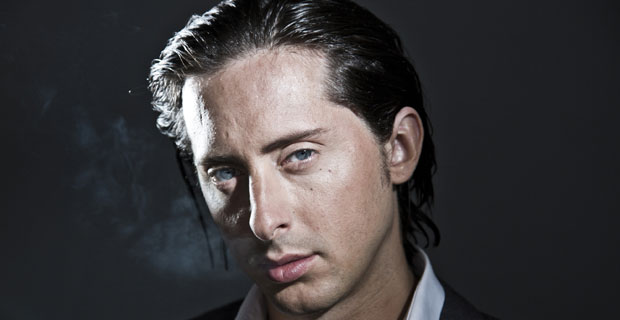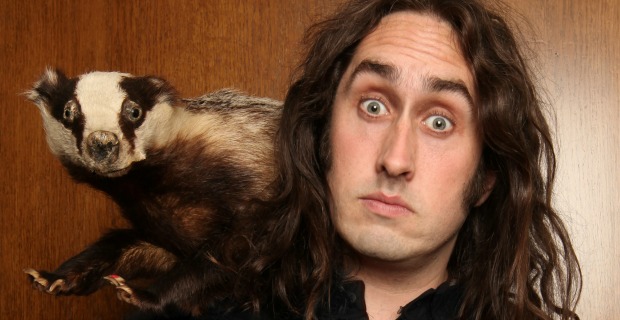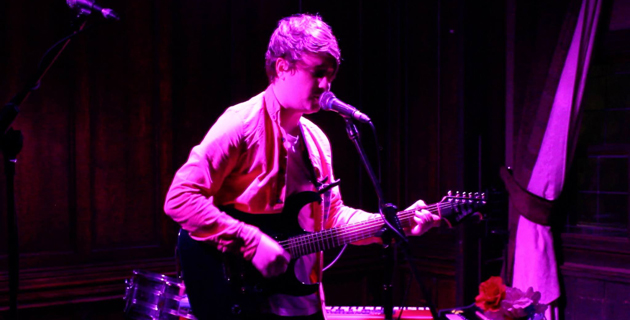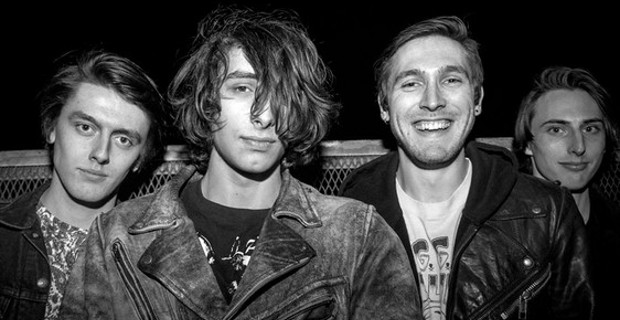Carl Barât is playing in Manchester at The Academy of February 27th
Who is Carl Barât? To many he is the co-frontman of The Libertines, one of the most influential groups in modern musical history. To others he was simply the other boy in the band, being overshaddowed by an anti-hero, Pete Doherty. After the drug-fuelled demise of this energetic group, a theatrical press performance seemed to call the final curtain.
Now Barât is nearing the end of a journey of self discovery, culminating in both an eponymous solo debut album and a memoir, not to mention a step into the maturity of fatherhood. So who is the man taking a strangely myspace styled pouting photograph of himself through a mirror on the cover art of his new record? What is to be perceived from this snapshot?
Read below as he reflects on the making of this latest work, his self-analytical memoir, The Libertines reunion, and the exorcising of past demons…
You have a lot happening at the moment with the release of the new solo record and secondly the book, not to mention a Libertines reunion. The new album is very dramatic and theatrical in places
Carl Barât: Yeah that’s what I wanted, almost like a Tim Burton influence on the album.
The lyrics really come to the fore. It’s quite a reflective album. You seem very self-aware at times. Would you say it’s the sound-track to the book?
CB: That was kind of intentional and half came about by accident really. I definitely reflected on the past when I was writing the lyrics. It’s the first time I’ve written lyrics introspectively. I was thinking about the births and deaths, the rises and falls of relationships and bands. There was a lot there to reflect on and I was clearing out my closet.
You speak of rise and falls would you say you’re on the rise again with the recent Libertines shows?
CB: I could be potentially but I’m not going to have enough time for it for at least another year. I can’t be dealing with the Libertines and having a baby. I’ve got to tour this album. I want to give it a good crack of the whip.
Fatherhood brings with it a lot of responsibility; maybe you won’t be able to achieve the care free attitude of Run With The Boys quite so often. Are you daunted at all?
CB: I’m going to throw myself into it and most of the things I throw myself into are quite daunting (laughs). Everyone keeps telling me you can’t prepare for anything like this so I haven’t really. I’m just going to see what happens.
You’ll have a lot of life experience to draw back on when you’re raising someone.
CB: Yeah definitely. I mean I’m not sure if my experience is for better or worse but I’m going to throw myself in and do my best.
When you looked back on your career while writing this book what conclusion did you draw? You have accidentally had the rock’n’roll clichéd lifestyle, women, drugs, booze…
CB: I try to put it all in a very human perspective. I wasn’t trying to write the dirt but it just got to a point where, this album and getting the book out of my system kind of ties in with realising that the life I was leading just doesn’t last forever and why would you want it to? You’d just be sad and empty.
Do you look back on those times with a fondness or is there always a tinge of regret?
CB: There is regret for sure but it’s all flavoured the album. The record is quite optimistic to me, although there’s low points I think it’s about realising that the point of all that was to get where I am now which is, without wanting to get into a Zen cliché, it’s indicative of a journey. I’m not just a sort of thug, which I was before. Now I have a new perspective and that journey for me has come about by having proper love and a family and I’m not saying I’m going to get my slippers out but I thought the journey was already over back then.
When did you begin to realise you priorities were changing? When The Libertines broke up? Dirty Pretty Things or going solo?
CB: Probably the latter. Going solo was the moment I kind of had to face up to myself and try to cast aside the same demons that I had for so many years.
What were those demons?
CB: Well the same as anyone who strives to create and join bands and live that life really. There’s probably a cliché in there somewhere.
What does The Libertines represent to you? Is it going back to a time you’ve grown out of and would rather forget or is it wanting to regain and rewrite the past?
CB: I certainly don’t want to rewrite the past but I think The Libertines has become something that brought a lot of people together and a lot of people are still very personal about it and are a part of it. I don’t want to change history, it brings back some sad times but it’s kind of a trade off really, there’s a lot of goodness that came out of it too.
It must be amazing to know that so many bands site your records as a major influence on them.
CB: Yes, that’s the love of it, and that’s all I really want from it. I’m only just starting to get happy about that sort of thing. I’m only just beginning to come out of the gloom.
Is The Libertines a fully functioning unit again now? Is Pete Doherty out of the destructive part of the journey that you’ve gone through?
CB: I don’t know. He’s certainly on his journey and I’m on mine. The fact that we’re on different journeys I think is the thing that splits up most bands. It starts to rear itself in the off-standing competitiveness and drive. But I certainly wouldn’t say we have any concrete plans. In fact we haven’t got any plans. We’d like to do something when the time comes. Yeah it’s a bummer actually because every interview I do people want to know about The Libertines and gigs but there isn’t really one.
Writing the book does bring around the interest in those Libertines years again but maybe the book closes the chapter and then a new one is ready to be written
CB:That’s what I want really but not just for The Libertines. It’s a really tough one because I want to do my thing as well but I want to give people what they want so it’s always going to be a difficult one to navigate.
How did it feel to not have anyone else to compromise with on the new material, having the final say yourself?
CB: Just for my own sanity at the moment I need to get my own thing out, for want of a better word. It was a relief to write this album. I didn’t realise that not writing made me depressed until recently and I just had to get it out. I really thought I wasn’t one of those people but it turns out I am.
There’s nothing wrong with having a cathartic outlet though.
CB: No I guess not. One can always feel guilty for being cathartic. I feel like people want me to remain in a gloomy doldrum but I think that’s my own thing I’m projecting there. I have a habit of blaming myself no matter what happens.
How easy was it to trust yourself when creating a new sound for the solo record?
CB: It was a bit of a gamble. I can’t allow myself to think about how it’s going to be perceived. I feel like I’m growing musically and learning different things. I’ve always had that theatrical element really, the stuff I’d done with The Libertines was Boys In The Band, a very theatrical performance but I think it was sometimes covered over with the strum of guitars and loud things but there was always an element of that.
What was the message behind the album cover? There seems to have been an internet furore about that. Some people see it as Narcissus looking into the river, what was the original intention?
CB: Swan’s reflecting elephants? I don’t know. It was just literally because naming it anything other than making it eponymous was a distraction from what it was about and I was thinking a photograph in a mirror, looking at things from different directions and my own perceptions. I don’t know how I want to be perceived or how I am perceived. I don’t want to take myself too seriously. It just seems honest and I’ve always said in interviews about every album I’ve done that it was an accurate snapshot of the time so that is my snapshot of that time.
Where do you see the future for you? Is it working on your own?
CB: Yeah. I always need to bounce off somebody, and that’s the way that I write best and I’d like to carry on working as myself but we’ve just got to see how everything stands in a year. You never know what’s going to happen. I know that my work seems to be reflecting my life a lot more.
You may lose the impetus to write if you’re living a stable family life
CB: I’ve always said I’d rather be happy than write songs and maybe that’s selfish, then again maybe like you say I’m just being too self aware.
Writing the book may open you to a fresh audience who may only have perceived you in the same Pete Doherty sense of rock’n’roll hedonism. This affords you the chance to take your self-awareness and use it as a tool to analyse what you’ve been through and compel more people to read.
CB: Yes that’s maybe an outcome. The point of doing it was for me to self analyse rather than to say to people ‘this is the real me’.
Are you not tempted to say ‘this is the real me’ sometimes though considering how much you must read about yourself?
CB: (laughs) If I knew who the real me was then maybe I would but I don’t really know if I do.
Words: Simon Butcher




